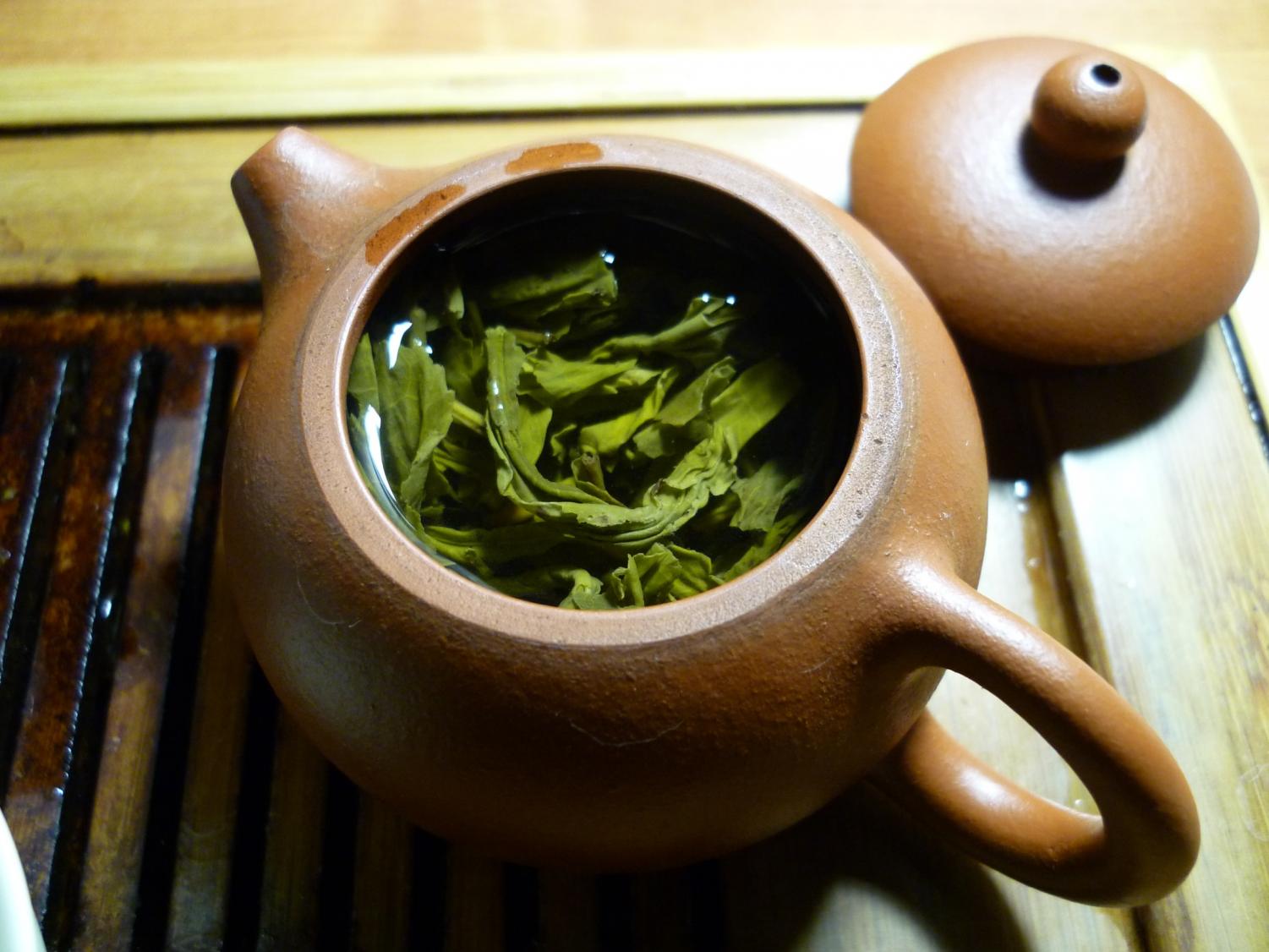Tea Benefits on Student Life
December 1, 2020
Though a majority of teas derive from identical origins (the Camellia Sinensis plant), they develop distinct characteristics during oxidation and processing, giving teas overarching common qualities while simultaneously allowing them to form their own unique properties and health benefits. Many of the advantages of regular tea consumption can be applied to student life, with different varieties helping one stay more focused, improving brain function, and boosting energy. Thus, incorporating teas into one’s diet can strengthen his academic or athletic performance while also providing him with nutrients and antioxidants that support longevity.
This year, it is especially important to protect one’s immune system. Green, turmeric, black, pu’erh, and ginger teas contain high levels of Vitamin C and antioxidants, helping the body defend against inflammation and strengthening one’s capacity to fight off common illnesses, such as the flu or cold. Black tea’s polyphenols specifically help prevent ailments such as salmonella by prompting defensive bacterial growth, restricting harmful bacterial growth. Moreover, herbal varieties such as dandelion, licorice, cayenne, and ginseng teas are high in antioxidants, support the reproduction of white blood cells, stagnate virus evolutions, thin throat mucus, and prevent sore or irritated throats. Pu-erh tea helps enhance blood circulation and movement by increasing oxygen levels with its oxidative qualities, delivering more oxygen to the brain, which helps one defend against headaches or migraines and suppresses free radicals that can promote severe illnesses.
Additionally, herbal teas can calm anxiety, allowing them to be suitable beverages to have before tests, performances, competitions, or other sources of stress. Many varieties are renowned for their soothing effects, with peppermint, chamomile, passion flower, and lemon balm teas encouraging body relaxation, acting as a sleep aid, or projecting anti-stress hormones due to their powerful rejuvenative properties. Herbal teas can also help reduce pain without imposing the negative effects of pharmaceutical drugs, with feverfew and turmeric tea being sufficient against headaches, migraines, or arthritis pain. Because of their relaxing and comforting effects, herbal teas could also be used to help students solidify a healthy sleep schedule.
Contrastingly, teas can also be used to keep one awake, which could be useful for students who often feel drained in the mornings or when doing schoolwork. Black tea can improve alertness and accuracy, containing the highest caffeine content of any tea, a stimulant that provokes a response without making one too jittery, increasing aspects of brain function, with new studies linking caffeine to improved long-term memory. Green and pu’erh teas also contain caffeine, enhancing one’s focus and stabilizing energy levels. Because teas generally possess less caffeine than coffee, they can also act as alternatives for one trying to restrict his caffeine intake.
Teas also offer a range of aesthetic benefits, contributing to whiter teeth and youthful skin. White tea and its compounds can protect one’s skin against aging, rather it be due to internal cellular damage or external UV damage that may disrupt the skin’s properties. White tea’s antioxidants have been shown to help the skin stay firm and tight, with a study suggesting that applying white tea extract directly onto the skin provides a sense of defense against the sun’s harsh rays. White tea, along with most other kinds of tea (specifically green), has also been connected to weight loss and reduced heart disease risk. Moreover, this type of tea is abundant in fluoride, catechins, and tannins, meaning that it could help protect teeth from bacteria and sugar, fighting cavities by strengthening the teeth’s surfaces.
Each variety of tea has unique benefits, and regular consumption of such can produce worthwhile effects. Many teas share common properties that make them innately favorable, such as their weight loss abilities, concentration of antioxidants, or support for bodily systems, while also projecting distinct advantages based on specific variety. Making tea a staple in one’s diet can help him progress as a student, athlete, or individual in general, contributing to a healthy lifestyle and offering aid to an array of mental and physical bodily functions.
